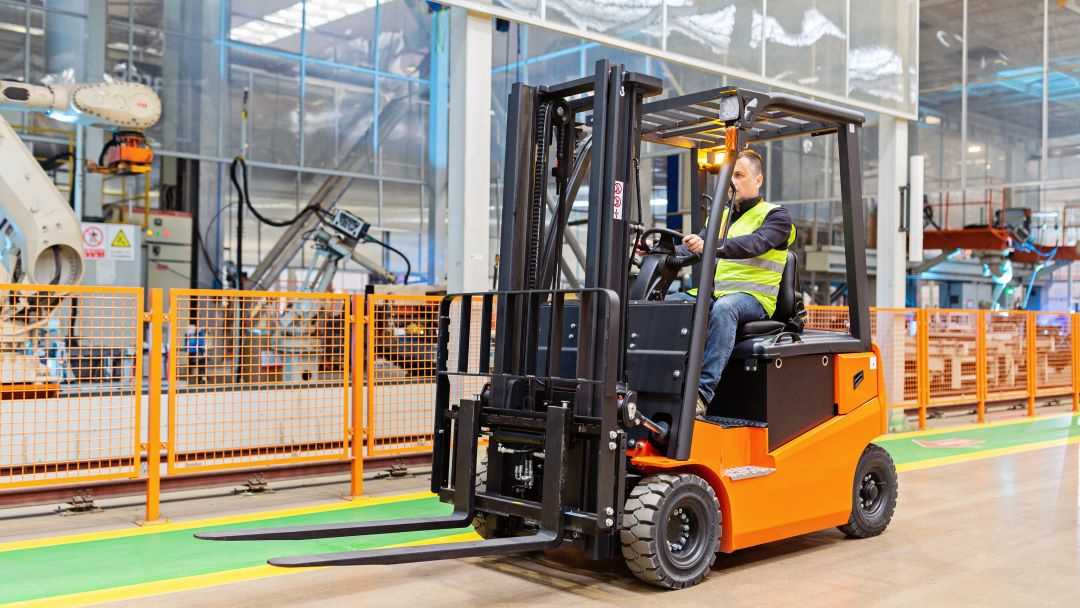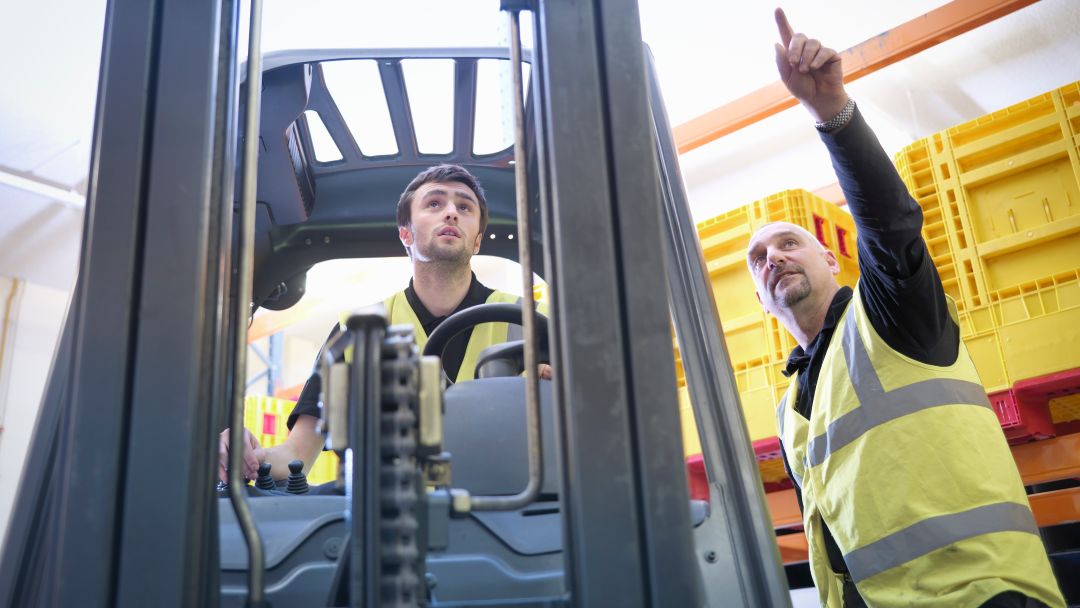There’s a lot of misinformation on the Internet about forklift certification. So we’ll clarify an important point upfront: Forklift certification isn’t like getting a driver’s license. There is no state- or federal-issued license. The license is actually provided by the business or client you’re working for.
Why is this the case?
OSHA regulations. The Occupational Safety and Health Administration (OSHA) legally mandates that any forklift operator in the workplace must be trained and certified. OSHA views forklifts as powered industrial trucks and has strict training guidelines outlined in 29 CFR 1910.178. Companies can face major fines and penalties if caught with uncertified operators.
The potential for workplace accidents and injuries. Forklifts weigh thousands of pounds and improper use can lead to serious injury or death. Proper training teaches operators how to inspect equipment, load properly, and drive defensively to prevent tip-overs and collisions. Certified operators help minimize safety incidents.
Learning Objectives for Forklift Operators
Forklifts are just one piece of equipment that’s considered a powered industrial truck, or PIT. Other PITs include electric pallet jacks, and tow tugs. When you work with an employer, you’ll need to be certified to use the specific piece of equipment you’ll be operating.
Forklift training programs aim to equip operators with the knowledge and skills needed to operate forklifts safely and efficiently. Key learning objectives include:
Proper Operating Procedures
- Understanding forklift controls and instruments, including how to accelerate, steer, brake, and tilt/lift the forks.
- Knowing how to properly maneuver the forklift forward, backward, and while turning.
- Learning protocols for picking up, moving, and placing loads.
- Practicing smooth operation of the forklift to avoid hazards.
Load Handling Techniques
- Determining center of gravity and stability characteristics for different loads.
- Positioning forks properly under the load and tilting back to stabilize.
- Keeping loads low and close to the ground when moving.
- Spotting the path of travel and looking in the direction of movement.
Performing Inspections
- Conducting pre-operation checks of fluid levels, tire pressure, mast, and warning systems.
- Identifying potential component defects or malfunctions.
- Reporting maintenance and repair needs promptly.
Safety Protocols
- Obeying forklift weight capacities, load charts, and safety placards.
- Following traffic rules and rights-of-way in the warehouse.
- Sounding the horn and driving defensively to avoid accidents.
- Wearing seatbelts and personal protective equipment.
- Keeping arms, legs, and head inside the operator compartment.
Forklift Testing Requirements
To earn forklift certification, you can expect your employer to require you to pass a written knowledge test, gain training on specific equipment they’ll be using, and pass a practical skills evaluation.
Written Knowledge Test
The written knowledge test covers important safety, operation, and maintenance information. Sample topics include:
- Load capacity and stability
- Equipment inspection
- Refueling and recharging procedures
- Hazard avoidance and accident prevention
- Signage and signals
- Pedestrian safety
Practical Skills Evaluation
In addition to the written exam, operators must demonstrate their ability to safely operate a forklift through an obstacle course and simulated workplace environments. Examiners evaluate skills such as:
- Pre-operational inspection
- Load manipulation, including lifting, lowering, and stacking
- Forward and backward driving
- Turning and maneuvering in tight spaces
- Spotting and placing loads
- Load security and integrity
Who Needs Forklift Training?
Forklift training and certification is required for any employee who will operate a forklift as part of their job duties. While forklift operators are found across many industries, there are a few fields where they are especially common:
Warehouse Workers. Forklifts are ubiquitous in warehouses and fulfillment centers, where they are used to move, stack, and retrieve inventory and products. Any warehouse worker whose responsibilities involve product movement will need forklift certification. This includes order pickers, stock clerks, and loading associates.
Manufacturing Workers. In manufacturing facilities, forklifts help transport raw materials, move work in process through production lines, and load finished goods for shipping. Manufacturing production workers, plant operators, and shipping associates often require forklift training.
Construction Workers. At construction sites, forklifts lift, carry, and place heavy building materials. Forklift operators are a common sight on commercial, industrial, and infrastructure builds. Many construction laborers, equipment operators, and contractors need forklift licenses.
Experienced Operators. While forklift training is required for any new operator, experienced operators also should take refresher courses to prevent complacency, keep skills sharp, and communicate regulatory or policy changes. OSHA requires recertification every three years; however, some jurisdictions and employers may require more frequent inspections as part of their best practices.
How to get training to operate a forklift
Some employers provide training, with new operators working under close supervision of a trainer.
Employbridge does not currently provide forklift training but is investigating whether to offer it in the future. However, we do validate the skills of forklift operators before sending them on assignment. At our validation centers, our process includes a written exam, training on specific types of equipment, and a hands-on evaluation. We have 20 validation centers, which are located throughout the United States.
We also require the operators we hire to have previous experience operating equipment that would be required by the employers we work with.
What about online forklift training courses?
Online programs can be an accessible and practical option for people who want to become operators. However, they only cover part of what you’ll need to know, such as load calculations and understanding center of gravity.
In addition, online courses can be expensive and you’ll still need to complete training on the equipment.
Continuing Education Requirements
To renew a forklift operator certification, periodic continuing education is usually required. Operators may need to complete refresher training courses. Employers or clients will provide this training and evaluation at least every three years as OSHA requires. but may choose to do so more often depending on their needs, policies, or procedures.
The goal of continuing forklift education is to ensure operators maintain and expand their knowledge. Refreshing important safety information helps prevent complacency and skills erosion over time. Continuing education requirements help keep operators up to date on any changes to regulations, equipment, or best practices.
How Employbridge Can Support Career Growth
Becoming a forklift operator can be a first step toward a career in fields such as logistics and construction. Employbridge supports job seekers by offering opportunities for growth and advancement in the electrical trades and beyond.
With flexible employment options, comprehensive life and career skills courses, and strong industry relationships, Employbridge empowers individuals toward professional and career development. You can explore all our job opportunities or contact us today to learn more.

